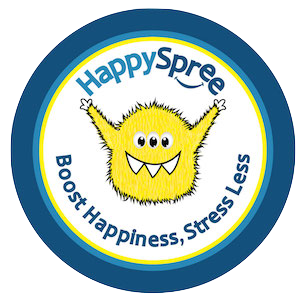(Photo credit kaboompics)
Happiness is not something ready-made. It comes from your own actions.
–Dalai Lama XIV
Our world needs more happiness, especially during this coronavirus pandemic. Gratitude journals are scientifically proven to increase happiness (Lyubomirsky, Dickerhoof, Boehm, and Sheldon 2011; Seligman and Anselmo-Matthews, 2012). Writing down three positive things per day can help depressed people feel better for up to three months and help happy feel happier and stay happy for three to six months. (Seligman, Emmons & McCoullough Ben-Shahar ). Increased happiness positively impacts your mental and physical health, family, friendships, community, and our world. Also, gratitude journals have helped diverse populations feel happier (Chan, 2010; Cunha, Reppold, and Pellanda, 2019; Lyubomirsky et al., 2011).
One study asked participants to write down “three good things” that went well, and why they went well. Participants did this for seven days. The best time to write was before bedtime each night. Researchers found “three good things” increased well-being and lowered depression.
This gratitude intervention works by changing thinking patterns from “what went wrong” to “what went right”. So this can change, I had a bad day to, I enjoyed walking my dog, my Carrot Cake recipe tasted delicious, and I had a fun phone chat with a friend, Click on the video, below, to learn more about how writing down gratitude works from the founder of positive psychology, Dr. Martin Seligman.
Three Good Things
Also, Harvard professor Tal Ben-Shahar, teaches the most popular class at this university, Positive Psychology. He has kept a gratitude journal every day since 1985. He states the benefits of gratitude include: greater happiness, optimistic thinking, greater relationship success, increased health and more. Click this video to hear his thoughts on increasing happiness without needing to pay Harvard tuition.
Five Ways To Become Happier Today
Still need convincing?
Happy people live longer, like the nuns in this study. The study found “positive emotional content in early-life autobiographies was strongly associated with longevity 6 decades later.”
Since happiness has many benefits, why not take a few minutes to write down three positives? You can grab a stick and write them in the sand, or use a piece of paper and a pen, or use the HappySpree Gratitude Journal. It’s free, easy and only takes 3 minutes per day.
Need more scientific proof on gratitude journals and increased happiness? View the research studies below.
Want more happiness and to track your happiness trends? Join HappySpree
About the author
Kendeyl Johansen is a tech geek creating inspirational multimedia content to increase happiness and health for individuals and organizations.
Scientific Proof for inquiring Minds (References)
Baumgarten-Tramer, F. (1938). “Gratefulness” in Children and Young People. The Pedagogical Seminary and Journal of Genetic Psychology, 53(1), 53-66.
Boehm, J., Lyubomirsky S. & Sheldon K. M. (2011) A longitudinal experimental study comparing the effectiveness of happiness-enhancing strategies in Anglo Americans and Asian Americans, Cognition and Emotion, 25:7, 1263-
1272, DOI: 10.1080/02699931.2010.541227
Carpenter, J., Crutchley, P., Zilca, R., Schwartz, H., Smith, L., Cobb, A., & Parks, A. (2016). Seeing the “Big” Picture: Big Data Methods for Exploring Relationships Between Usage, Language, and Outcome in Internet Intervention Data. Journal Of Medical Internet Research, 18(8), 373-390.
Chan, D. (2010). Gratitude, gratitude intervention and subjective well-being among Chinese school teachers in Hong Kong. Educational Psychology, 30(2), 139-153.
Cunha, L. F., Reppold, C. T., & Pellanda, L. C. (2019). Positive psychology and gratitude interventions: A randomized clinical trial. Frontiers in Psychology, 10, 584.
Davis, D., Choe, E., Meyers, J., Wade, N., Varjas, K., Gifford, A., . . . Worthington, E. (2016). Thankful for the Little Things: A Meta-Analysis of Gratitude Interventions. Journal of Counseling Psychology, 63(1), 20-31.
Dickens, L. (2017). Using Gratitude to Promote Positive Change: A Series of Meta-Analyses Investigating the Effectiveness of Gratitude Interventions. Basic and Applied Social
Psychology, 39(4), 193-208.
Howells, A., Ivtzan, I., & Eiroa-Orosa, F. (2016). Putting the ‘app’ in Happiness: A Randomized Controlled Trial of a Smartphone-Based Mindfulness Intervention to Enhance Wellbeing. Journal of Happiness Studies, 17(1), 163-185.
Lyubomirsky, S., Dickerhoof, R., Boehm, J., & Sheldon, K. (2011). Becoming Happier Takes Both a Will and a Proper Way: An Experimental Longitudinal Intervention To Boost Well-Being. Emotion, 11(2), 391-402.
Mongrain, M., & Anselmo-Matthews, T. (2012). Do Positive Psychology Exercises Work? A Replication of Seligman et al. Journal of Clinical Psychology, 68(4), N/a.
Seligman, M.P., & Anselmo-Matthews, T. (2012). Do positive psychology exercises work? A replication of Seligman et al. (2005). J. Clin. Psychol. 68, 382–389. doi:
10.1002/jclp.21839
Seligman, M. P., & Csikszentmihalyi, M. (2000). Positive psychology: An introduction. American Psychologist,55(1), 5–14. doi:10.1037/0003-066X.55.1.5
Seligman et al. (2005). J. Clin. Psychol. 68, 382–389. doi: 10.1002/jclp.21839 Seligman, M.P., Steen, T. A., Park, N., Peterson, C. (2005). Positive psychology progress — Empirical validation of interventions. American Psychologist, 60 (5) (2005), pp. 410-421
Watkins, P. C., Van Gelder, M., and Frias, A. (2009). “Furthering the science of gratitude,” in Oxford Handbook of Positive Psychology, eds S. J. Lopez and C. R. Snyder (New
York, NY: Oxford University Press), 437–445.
U.S. National Library of Medicine. (2019). An Online Trial of 5 Well-Being Programs. [Website]. Retrieved from https://clinicaltrials.gov/ct2/show/NCT03233022
Wood, Froh, & Geraghty. (2010). Gratitude and well-being: A review and theoretical integration. Clinical Psychology Review, 30(7), 890-905.


